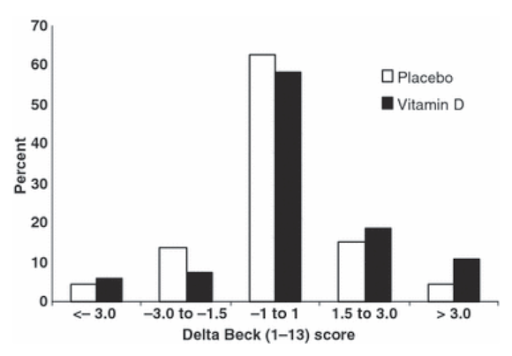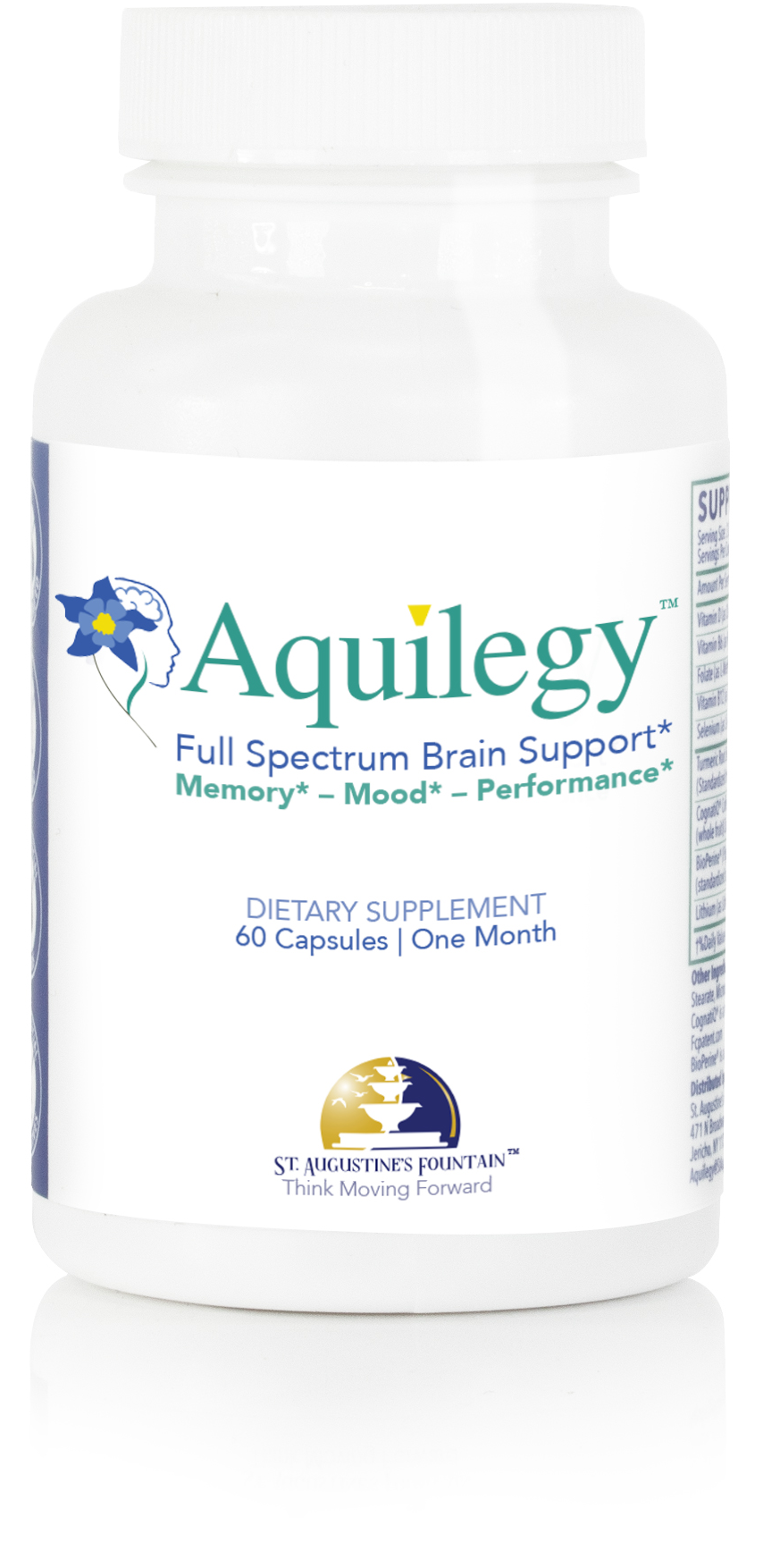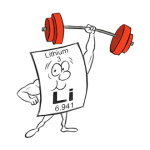Vitamin D And Mood

Studies Show Vitamin D Supplementation Improved Mood Scores.
A study of over 111 people who received vitamin D supplementation for six months found significantly improved mood scores correlating with supplementation. After vitamin D supplementation stopped, researchers found these scores worsened as vitamin D levels in subjects declined (2).
A study with 441 people evaluated the effects of vitamin D on mood versus placebo. After one year, those receiving vitamin D showed a significant improvement in mood evaluation scoring compared to placebo. The authors of this study conclude there appears to be a correlation with vitamin D levels and symptoms of poor mood (3).
Vitamin D Deficiency Is Associated With Anxiety & Poor Mood.
A published review found a significant association between mood disorders and vitamin D deficiency in 4 of 6 studies that were evaluated. The authors of the review believe this association may be linked to the presence of vitamin D receptors in the brain. Receptors not adequately filled may possibly interfere with normal brain biological processes (1).
A study published in 2021 found 49 out of 50 patients with obsessive compulsive disorder (OCD) who were selected were deficient in vitamin D. Researchers of this study conclude vitamin D levels may possibly be related to severity of OCD symptoms (4).
A 2015 study divided 200 people into male and female groups. Each of these groups were further divided into 1) those with an anxiety disorder, 2) those with a mood disorder, and 3) those with neither. Researchers found significantly lower blood levels of vitamin D in all anxiety and mood disorder groups (both male and female). Those who did not have an anxiety or mood disorder were found to have normal vitamin D levels (5).
A study of 30 patients with anxiety disorder who were being treated at an inpatient unit were divided into 2 groups. One group received standard care while the second group received vitamin D supplementation in addition to standard care. At the end of the 3 months, the group receiving vitamin D experienced significant improvement on anxiety score testing while the group receiving standard care alone did not (6).

(Jorde, R., Sneve, M., Figenschau, Y., Svartberg, J., & Waterloo, K. (2008). Effects of vitamin D supplementation on symptoms of depression in overweight and obese subjects: Randomized double blind trial. Journal of Internal Medicine, 264(6), 599–609. https://doi.org/10.1111/j.1365-2796.2008.02008.x)

1) Murphy, P. K., &; Wagner, C. L. (2008). Vitamin D and mood disorders among women: An integrative review. Journal of Midwifery & Women’s Health, 53(5), 440–446. https://doi.org/10.1016/j.jmwh.2008.04.014
2) Stokes, C. S., Grünhage, F., Baus, C., Volmer, D. A., Wagenpfeil, S., Riemenschneider, M., &; Lammert, F. (2016). Vitamin D supplementation reduces depressive symptoms in patients with chronic liver disease. Clinical Nutrition, 35(4), 950–957. https://doi.org/10.1016/j.clnu.2015.07.004
3) Jorde, R., Sneve, M., Figenschau, Y., Svartberg, J., &; Waterloo, K. (2008). Effects of vitamin D supplementation on symptoms of depression in overweight and obese subjects: Randomized double blind trial. Journal of Internal Medicine, 264(6), 599–609. https://doi.org/10.1111/j.1365-2796.2008.02008.x
4) Marazziti, D., Barberi, F. M., Fontenelle, L., Buccianelli, B., Carbone, M. G., Parra, E., Palermo, S., Massa, L., Tagliarini, C., Della Vecchia, A., Mucci, F., Arone, A., & Dell’Osso, L. (2021). Decreased vitamin D levels in obsessive-compulsive disorder patients. CNS Spectrums, 1–8. https://doi.org/10.1017/s1092852921000821
5) BIČÍKOVÁ, M., DUŠKOVÁ, M., VÍTKŮ, J., KALVACHOVÁ, B., ŘÍPOVÁ, D., MOHR, P., &; STÁRKA, L. (2015). Vitamin D in anxiety and affective disorders. Physiological Research. https://doi.org/10.33549/physiolres.933082
6) Eid, A., Khoja, S., AlGhamdi, S., Alsufiani, H., Alzeben, F., Alhejaili, N., Tayeb, H. O., &; Tarazi, F. I. (2019). Vitamin D supplementation ameliorates severity of generalized anxiety disorder (GAD). Metabolic Brain Disease, 34(6), 1781–1786. https://doi.org/10.1007/s11011-019-00486-1






